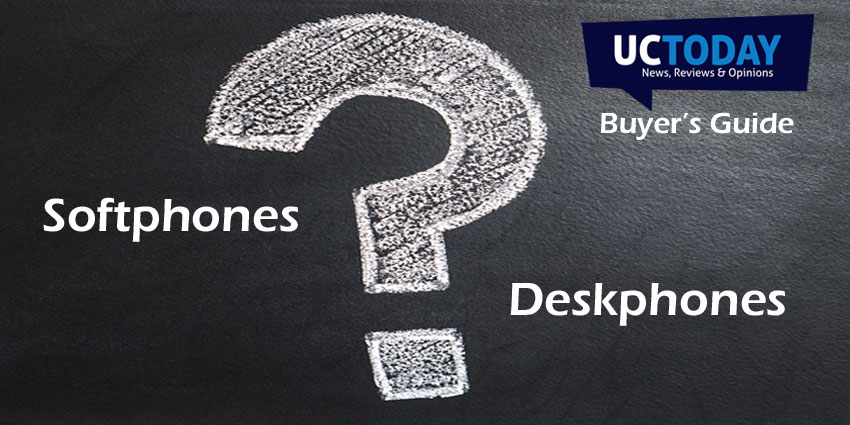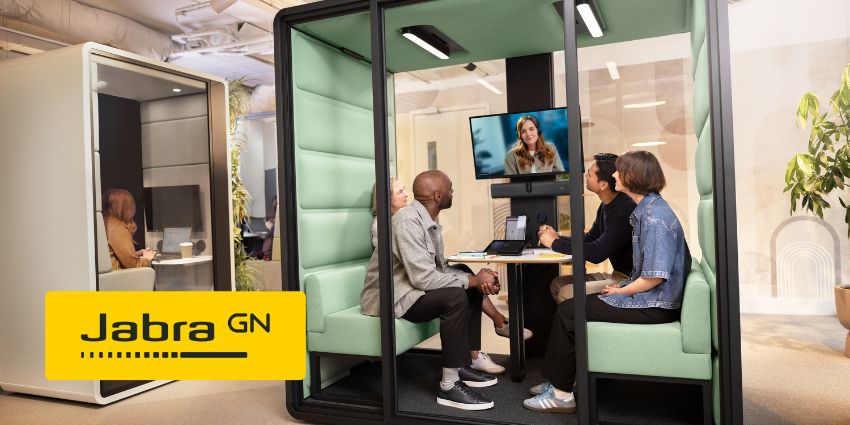The world of communication technology is changing at a faster speed than ever before. We’re seeing new developments emerge almost at a constant rate, in everything from collaboration suites to incredible headsets and deskphone designs intended to transform the standard meeting room. While it’s easy to get caught up in all the excitement of the latest developments, it’s important to remember that for most businesses, UC success will come down to one key point – the type of endpoint you choose.
When it comes to endpoints, businesses have a decision to make, between softphones, that live on their computer desktop, taking up no physical space, and drawing from software solutions, or deskphones – the traditional plastic option we’ve all grown familiar with. While some phone system vendors are convinced that the days of the deskphone are rapidly coming to an end, many others suggest that the traditional telephony solution will continue to be a powerful part of the business environment for years to come.
Here, we’ll help you decide whether a softphone or deskphone is right for your needs.
Positives and Negatives of Softphones
If you’re on the search for a flexible, versatile, and portable solution to Unified Communications, then you might be looking for a softphone. The softphone comes with many distinct advances, available when businesses choose to leave the traditional deskphone behind and opt for a more software-based piece of equipment. While a deskphone can be a pricey piece of hardware, tethered to a physical environment, a softphone deployment is a simple, cheap, and easy way to take communication with you wherever you go. The benefits of softphones include:
- Versatility: With the right software, you can install a softphone on any device you have with you in the moment. That means that you can call your customers or co-workers through a softphone on your desktop, your laptop, your smartphone, or your tablet
- Portability: The flexibility of the softphone means that you’re never restricted to a desk space. Your softphone can come with you wherever you might go. Depending on the software provider, and your phonelines, you can use your softphone as a sort of mobile phone
- Cost efficiency: Softphones cost practically nothing – there’s no investment in any expensive pieces of hardware, and this can be particularly beneficial to small teams and businesses who don’t have much of a budget to speak of. There’s no license, and no physical system to worry about
Of course, Softphones aren’t ideal for every situation. Softphones need to be able to work alongside whatever hardware is currently available, which means that the quality of your audio connections could vary quite significantly. If you or other people within your office frequently schedule calls with multiple parties at the same time, you’ll be better served by a dedicated VoIP phone. Additionally, some of the softphones available on the market today are incredibly basic. This means that you may not get the same level of features that you would expect from a proprietary deskphone.
Positives and Negatives of Deskphones
Although deskphones might not be as new and modern as the softphone, many users still consider them to be the simplest, most reliable way to make and receive calls from a business perspective. You can make your calls on a deskphone while your laptop is still booting up, and the overall experience is familiar to what you might have gotten used to over decades of communication. Since some statistics suggest that about 80% of all worldwide office workers are still desk-bound in most situations, it makes sense that the deskphone would continue to be a popular option for companies across the globe. The benefits of deskphones include:
- Exceptional quality: Deskphones are known for their incredible voice quality, and dedicated hardware, which ensures that all your calls are crystal clear. This can be particularly important when hosting important meetings. While call quality can depend on things like your QoS settings and bandwidth, using a deskphone can be enough to give you greater quality in some case
- Don’t sacrifice portability: Importantly, you don’t necessarily have to compromise on portability to invest in a deskphone either. Cordless phones are making it easier for people to move around the office freely. Of course, you can’t necessarily take these phones with you on the tube, but you can access some freedom and flexibility
- Efficiency and reliability: Departments that function entirely around phones, like tech support or customer service departments, will typically prefer deskphones, as they allow them to access all the features they need for efficiency and performance. Call management features are generally much easier to use on a dedicated hardware unit
Of course, deskphones might not be perfect for every occasion either. Deskphones are obviously less flexible than the standard Softphone and can be more expensive too, which is a problem for businesses without much budget to dedicate to UC.
Finishing Thoughts
Ultimately, the most important thing to remember is that the deskphone isn’t going anywhere – at least not yet. That means that if you want to get the best communication experience, then you’ll need to consider both deskphones, and softphones seriously.
Some companies today are beginning to support mixed environments, where certain people within the business can access softphones for communication, while other, more focused departments stick to the reliability of deskphones. At the end of the day, it’s about finding the strategy that works for you.







